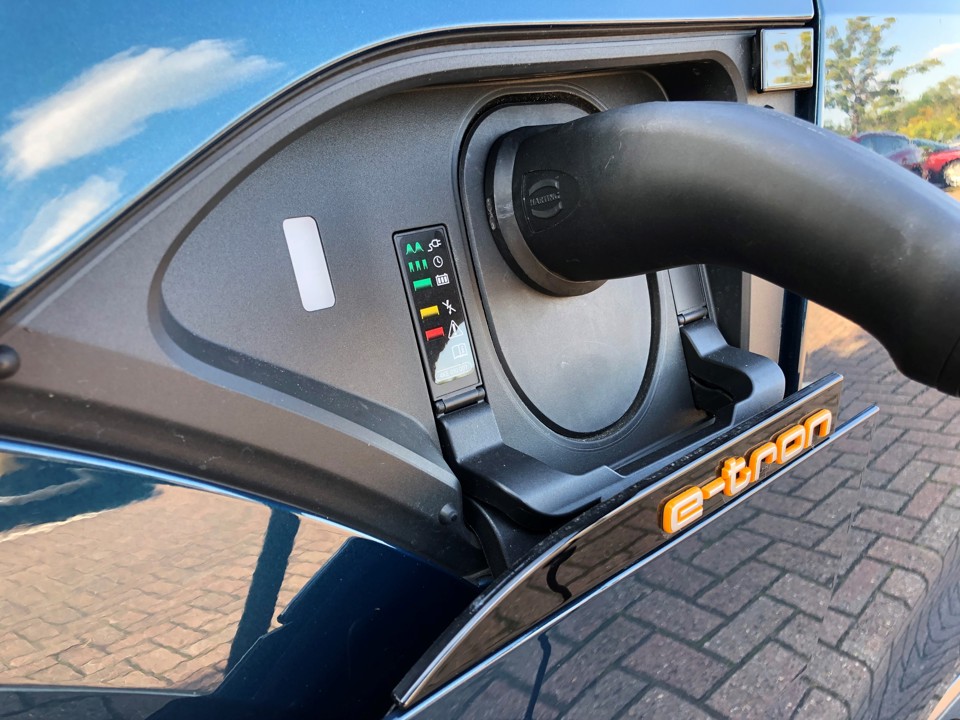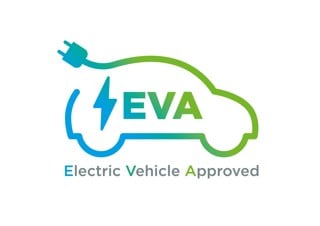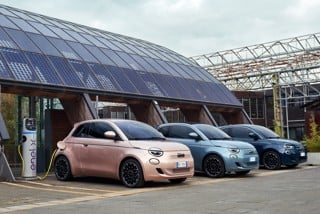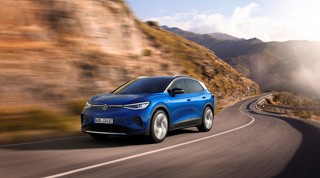The Society of Motor Manufacturers and Traders (SMMT) has accused the UK Government of making “the wrong move at the wrong time” with a decision to slash the plug-in car grant incentive on an electric vehicle (EV) purchase.
The plug-in car grant (PCiG) for pure EVs has been reduced from £3,000 to £2,500 and the list price cap reduced from £50,000 to £35,000 in a move which comes into force immediately – impacting sales of zero-emission cars and commercial vehicles.
The move follows Chancellor of the Exchequer Rishi Sunak’s earlier £500 cut to the grant back in March last year.
Critics of the latest EV incentive cut have already stated that the move represents a threat to the already “paper thin margins” presented by EVs and to Government’s ambitious Road to Zero plan to slash emissions.
 SMMT chief executive, Mike Hawes, said: “The decision to slash the Plug-in Car Grant and Van and Truck Grant is the wrong move at the wrong time.
SMMT chief executive, Mike Hawes, said: “The decision to slash the Plug-in Car Grant and Van and Truck Grant is the wrong move at the wrong time.
“New battery electric technology is more expensive than conventional engines and incentives are essential in making these vehicles affordable to the customer.
“Cutting the grant and eligibility moves the UK even further behind other markets, markets which are increasing their support, making it yet more difficult for the UK to get sufficient supply.
“This sends the wrong message to the consumer, especially private customers, and to an industry challenged to meet the Government’s ambition to be a world leader in the transition to zero emission mobility.”
Sue Robinson, the chief executive of the National Franchised Dealers Association (NFDA), said that the decision to cut the PCiG and Van & Truck Grant was "extremely disappointing", adding that it "risks undermining the progress the UK has been making towards a zero-emission market in line with the 2030/2035 deadline set by the Government".
 Robinson added: “The cost of the electric cars currently available on the market remain higher than their petrol or diesel counterparts and it is vital that buyers continue to be incentivised.
Robinson added: “The cost of the electric cars currently available on the market remain higher than their petrol or diesel counterparts and it is vital that buyers continue to be incentivised.
"Additionally, commercial vehicles keep the economy running, as the recent increase in LCV registrations demonstrates, and this reduction will have a significant impact on small businesses and sole traders.
“Sales of electrified vehicles have been performing well but they still represent a relatively small proportion of the overall market; the timing of the cut to the grant is unfortunate as a number of private customers are currently waiting for showrooms to reopen to get familiar with new types of vehicles, including EVs.
“NFDA has repeatedly highlighted that we must avoid a situation where the least well-off drivers are deterred from buying a new, low-emission vehicle when the time comes to replace their old one”.
Jim Holder, editorial director at What Car?, said: “While there’s no question that interest in electric cars is booming, it’s evident from our data that far more people continue to research them than buy them, indicating a hesitancy to commit to a new technology that the Plug-in Car Grant was helping to overcome, and that many of those that do buy an electric vehicle (EV) consider the grant a crucial incentive to close the premium between an EV and a combustion engines car.
Holder said that What Car? research, conducted among 12,029 car buyers in September last year, found 59% were considering an electric or hybrid vehicle as their next car, but cost remained a concern for 27% of buyers.
Holder added: “Chopping the grant only widens the gap between EV and ICE prices and emphasises a worrying underlying perception that electric cars are the preserve of the wealthy.
“While it was inevitable the carrot of the grant would whittle down over time and eventually be replaced by punitive measures, this feels too soon to take another step on that journey.
“The 2030 combustion only ban was announced with much fanfare - the thinking behind how to make the transition to that goal appears to be worryingly muddled, with this decision being further evidence of that.”
Government has said that the changes to the PCiG were being made to ensure the funding lasts longer, with the price cap lowered because higher-priced vehicles are “typically bought by drivers who can afford to switch without a subsidy from taxpayers”.
As the number of sub-£35,000 EVs has increased by almost 50% since 2019, government also pointed out that customers taking advantage of the PCiG will have access to an increased number of models.
AM reported last week that a UK thinktank had accused carmakers and the Society of Motor Manufacturers and Traders (SMMT) of “scaremongering” in their lobbying efforts related to the 2030 ban of purely petrol and diesel-powered cars.
The UK Government is expected to launch incentives and punitive measures to help encourage the uptake of EVs in the run up to the ban and mitigate a fall to 800,000 annual new car sales mapped out by the SMMT in projections, however.
The new green flash on electric vehicle number plates was hailed as a key tool in the roadmap to EV perks such as cheaper parking and access to special EV lanes.


















Login to comment
Comments
No comments have been made yet.